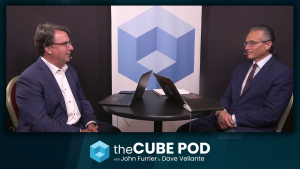OpenStack Answers Citrix Defection with its Strongest Release
![]() Call it fate, call it synchronicity, call it well-planned, but whatever you do, don’t call it a comeback. Just as Citrix gave its CloudStack platform to Apache and left the still-fledgling OpenStack Foundation in the lurch, OpenStack has shown it’s far from defeated with the launch of Essex, the fifth major release of the open source cloud platform.
Call it fate, call it synchronicity, call it well-planned, but whatever you do, don’t call it a comeback. Just as Citrix gave its CloudStack platform to Apache and left the still-fledgling OpenStack Foundation in the lurch, OpenStack has shown it’s far from defeated with the launch of Essex, the fifth major release of the open source cloud platform.
Essex is already being hailed by some OpenStack consulting firms and ISV partners as the most stable yet. I’ll spare you the technical details, but OpenStack Essex brings a new management dashboard for self-provisioning, an identity service providing for one log-in across multiple OpenStack projects, more granular data retention policies, better extensibility, and a new focus on service provider high-performance computing (HPC) deployment friendliness. All of these will prove assets as OpenStack goes after larger and larger enterprise deployments.
OpenStack Essex will be included in the forthcoming Ubuntu Server 12.04 release, continuing the relatively new relationship between the OpenStack Foundation and Canonical (and perhaps reopening some old wounds with Eucalyptus, which used to be the cloud platform behind Ubuntu Server).
Turning Point
OpenStack Essex is releasing at what’s going to go down as a pivotal moment in the history of the open source cloud movement, for better or worse. Some, like SiliconANGLE’s own John Furrier, see Citrix’s departure as ultimately meaningless for the future of OpenStack, and believe that that many service providers and vendors are signing on to the project for the positive PR instead of any inherent belief in the value of an open cloud. When Citrix handed CloudStack over to the Apache Foundation, critics say, it was merely cutting its losses on a project that had lost all its market momentum – it hadn’t contributed much to OpenStack, and the now-defunct Project Olympus will not be much missed, it seems.
But the OpenStack Foundation boasts that 200 developers from 55 different companies all contributed expertise and code to Essex. Citrix’s defection may have a long-term effect on morale, but at least in the short term, it appears developers are just as energized as ever, if not more so. In fact, judging by some of the barely-restrained polemics on Citrix and its commitment to the cloud and open source flying around since the departure, it may have actually sparked the community into overdrive.
It’s never easy, and with Amazon EC2 and Eucalyptus joining forces to lock the public, private and (don’t call it a) hybrid cloud markets up tight, OpenStack has its work cut out for it. And there are still lingering questions over Rackspace’s role in the governance of the OpenStack Foundation that may hurt its open source street cred.
But going after enterprise-scale stability sends exactly the right message at exactly the right time: OpenStack is more than the vendor logos it can display on its website, and it’s committed to becoming a true, open cloud standard. And with the scuttlebutt around the possibility of Amazon choosing to close off the EC2 API, take its ball, and go home, the mere existence of a compatible, but separate standard is more important than ever.
A message from John Furrier, co-founder of SiliconANGLE:
Your vote of support is important to us and it helps us keep the content FREE.
One click below supports our mission to provide free, deep, and relevant content.
Join our community on YouTube
Join the community that includes more than 15,000 #CubeAlumni experts, including Amazon.com CEO Andy Jassy, Dell Technologies founder and CEO Michael Dell, Intel CEO Pat Gelsinger, and many more luminaries and experts.
THANK YOU









